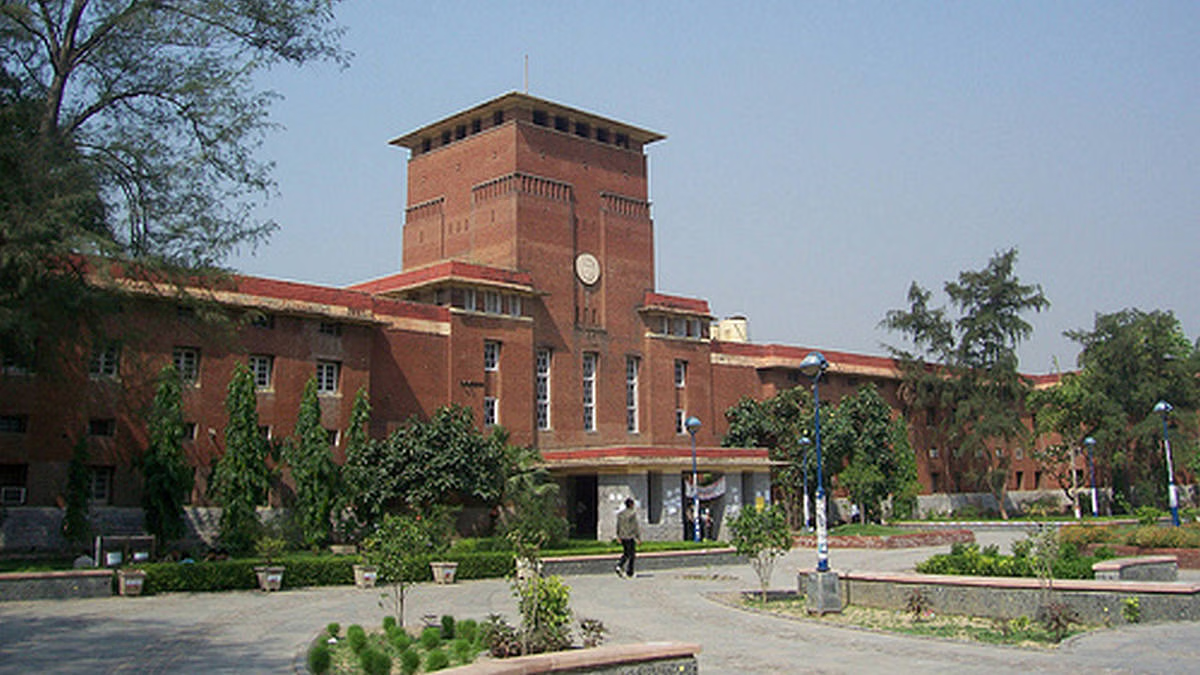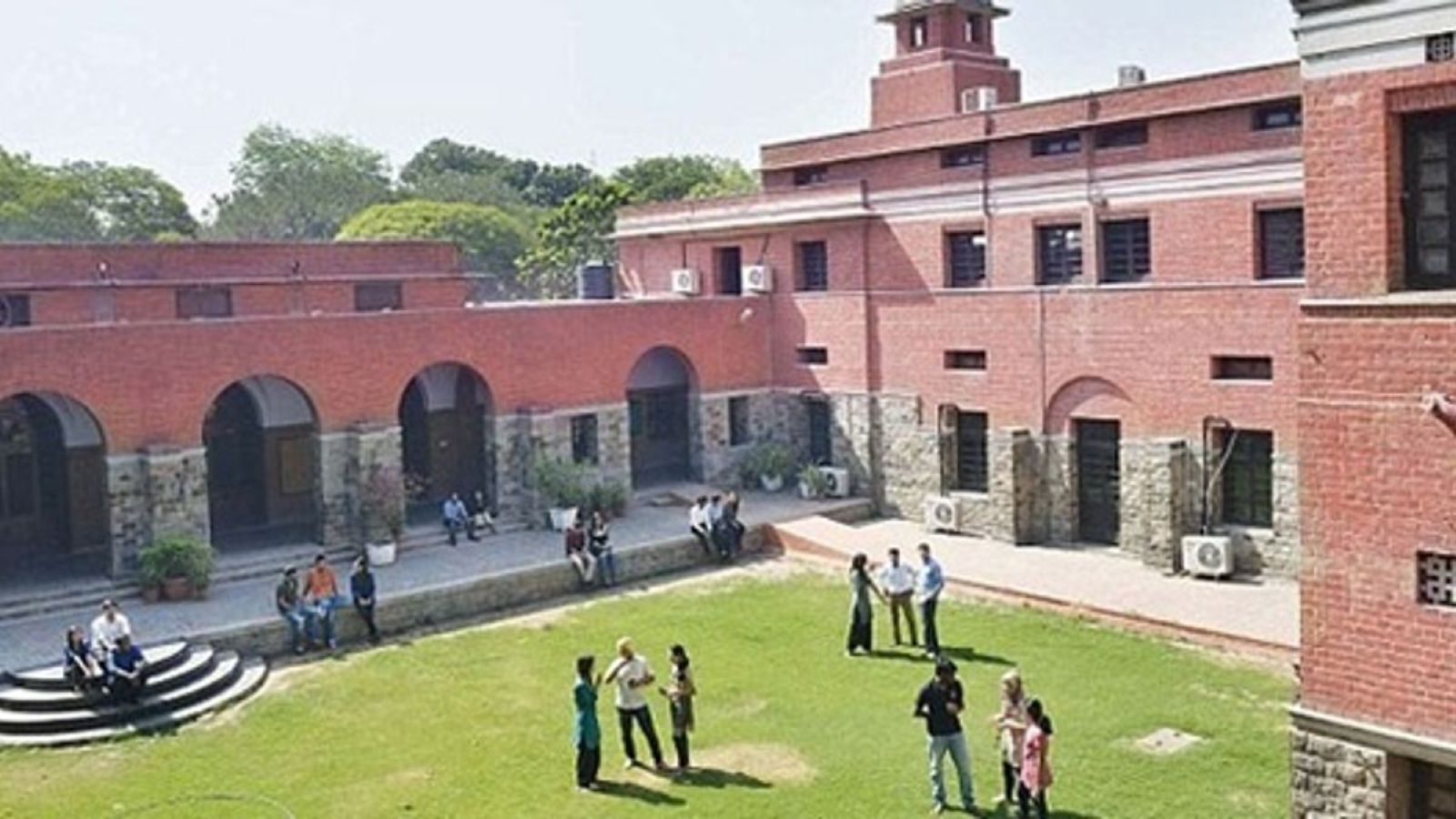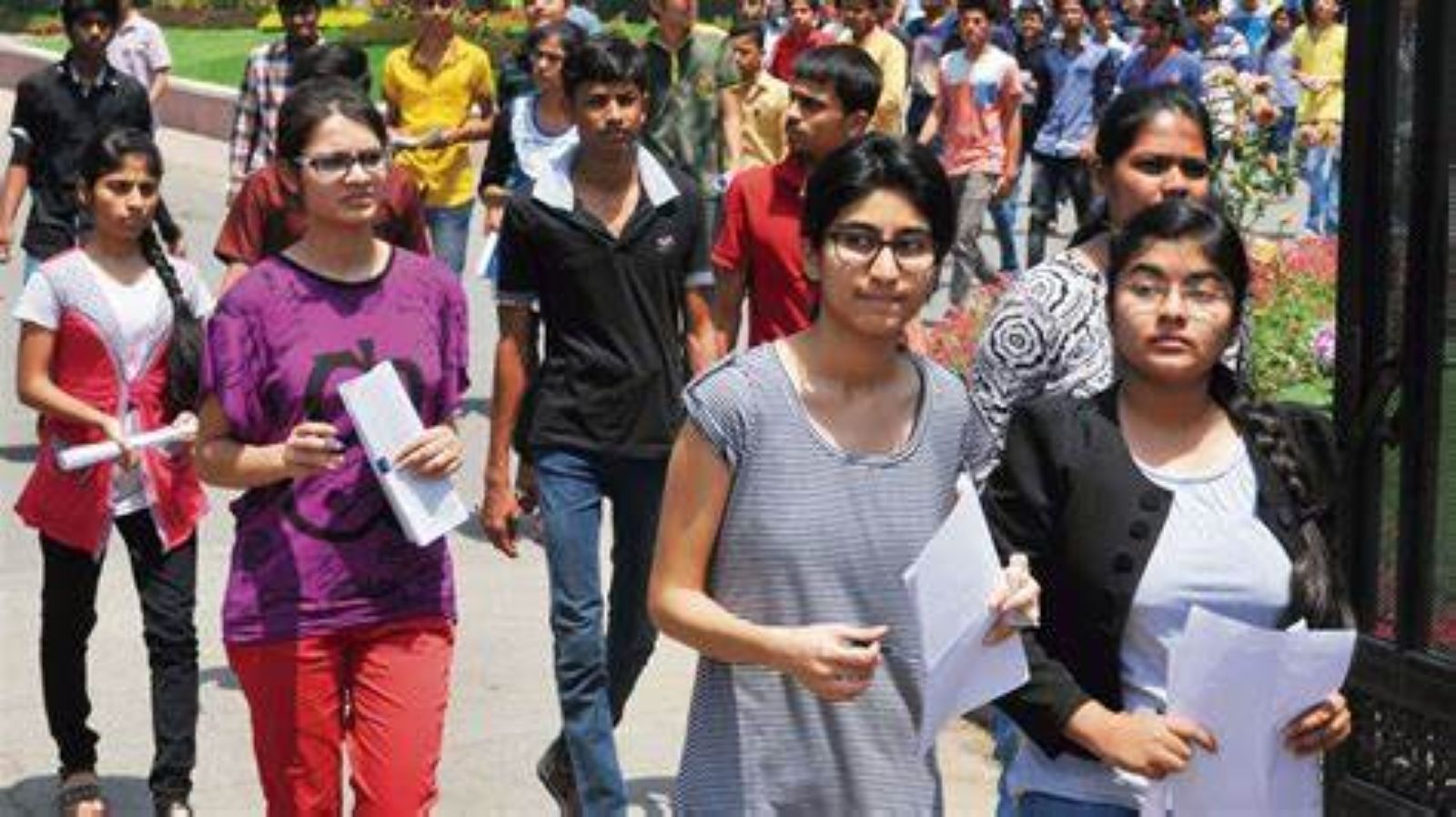Data science courses cover strategies that help companies make data-driven decisions, analyze market trends, and find ways to maximize profits. Data science is one of the highest paying jobs in India. The average salary of a data scientist in India is 1,000,000 INR / year, higher than that of an average software engineer (540,000 INR / year). The latest trends suggest a growing demand for data scientists in Banking and Insurance (38%), followed by Energy (13%), Pharmaceuticals and Healthcare (12%), Commerce (11%). Bangalore continues to create the most jobs (23%) for applicants taking data science courses, followed by Delhi-NCR and Mumbai.
Applicants can take online data science courses to learn the basics of data science or take full-time data science courses after grade 12, such as Diploma, UG, PG, and PhD courses in engineering or computer science. A bachelor’s or associate’s degree in data science is the preferred level of education for most data scientists, along with various data science certifications that data scientists obtain to increase their chances of being hired by businesses. . IBM Data Science Professional Certificate is one of the preferred certifications in data science.
What are data science courses?
Data science is a combination of data science tools, algorithms, and machine learning principles that help uncover hidden patterns from a set of raw data. Data science courses differ from statistics courses in many ways. A statistician will usually explain what is going on by processing the historical data. But Data Scientist also uses various advanced machine learning algorithms to identify the occurrence of a particular event in the future.
- Predictive Causal Analysis: Using data science courses, you can create a model that can predict the odds of a particular event in the future. For example, data science models can perform predictive analysis of customer payment history to predict whether future payments will be made on time or not if you want to see the likelihood of customers making future credit payments timely.
- Prescriptive Analytics: Data science courses empower users to build a model with the intelligence to make their own decisions and the ability to change decisions with dynamic parameters.
- Machine learning to make predictions: Data science courses can create a fraud detection model that can be designed based on historical records of fraudulent purchases at a large financial company.
- Machine learning for pattern discovery: Data science courses also allow the use of models capable of predicting future events without data entry or past trends, commonly referred to as pattern discovery. The most common algorithm used for pattern discovery is clustering.
Why is there a demand for data science courses?
- A 2018 report from LinkedIn reported a shortage of 150,000 people with data science skills in the United States. In India, around 93,000 data scientist jobs became vacant. This shows that there is a demand for data scientists around the world, provided they have the proper skills and knowledge of data science courses.
- In fact, there is a 29% increase in data scientist job openings each year, and data science courses are one of the most in-demand skills.
- The pay for data scientist positions is very high. In India, a data scientist earns more than a software engineer. Those with the right skills can earn INR 19 lakhs per year.
- Data scientists come from a variety of backgrounds, some come from natural backgrounds in computer science, engineering, mathematics, or statistics, and some also come from backgrounds in management and finance.
- Those in finance and management circles face challenges in terms of competition, but an IBM report finds the highest demand for data scientists (59%) in finance and insurance, therefore with the right skills, even students finance and administration can find decent jobs. after taking data science courses.
What qualification is required for data science courses?
- People of diverse origins such as chemical engineering, physics, economics, statistics, mathematics, computer science, etc. take data science courses.
- Most data scientists have a bachelor’s degree in statistics and machine learning, but this is not a requirement for taking data science courses.
- Be clear on the basic concepts of mathematics and statistics such as linear algebra, calculus, probability, etc. it is important for learning data science courses.
- Programming is an essential skill for learning data science courses. Programming languages like C, C ++, or Java are essential for learning data science courses with programming tools like Python and R.
- Data scientists need to know how to write a basic SQL query.
- Machine learning is an integral part of data science courses, so knowledge of machine learning is essential for data science courses.
What does a data scientist do?
- Data scientists solve complex data problems thanks to their solid knowledge and experience in certain scientific disciplines.
- They use basic knowledge of mathematics, statistics, computer science, etc.
- They use the latest technology to find solutions and draw critical conclusions for the growth of an organization.
- Data scientists can present data in a much more useful way compared to available raw data in structured and unstructured forms.
Types of data scientists
Data science as an individual discipline has only emerged in the last two years. People have been associated with the data science field, working as statisticians, mathematicians, machine learning scientists and actuaries, business analytics practitioners, numerical analysis consultants, quality analysts, and spatial data scientists.
Types of data science courses
Without Machine Learning, Big Data, and Artificial Intelligence, data science courses cannot prevail. These three courses are an integral part of data science courses and have important applications in the preservation of data science models.
| Machine Learning | Big Data | Artificial Intelligence |
|---|---|---|
i. Machine learning is a method of analysis of data that automates analytical model building. ii. It is an integral part of data science courses based on the idea that models can learn the data, identify patterns and make future decisions and predictions with minimal human intervention. iii. Machine Learning Courses have applications in financial services, government, healthcare, retail, oil and gas, and transportation. iv.Machine learning courses are offered as certificate and diploma courses, both online and offline, in top engineering colleges such as IIT Madras, and IIIT Bengaluru and websites such as Coursera and Udemy. v. A candidate is eligible to pursue machine learning courses after class 12th or graduation (whichever relevant) with knowledge of engineering subjects, and 50% marks. vi. Machine learning degree courses are BTech and MTech in machine learning along with data science, and artificial intelligence as specializations. vii. After machine learning courses, students can become Human-Centered Machine Learning Designer, ML engineers, Software Developers, AI engineers, Data scientists, NLP Scientists, etc. viii. The average salary ranges from INR 3-8 LPA in India. | i. Big Data is the collection of huge volume data, growing exponentially with time, the data can be structured, semi-structured, or unstructured. ii. Big Data has its day-to-day applications in Social Media, Stock Exchange, and Airports, that generate a huge amount of data every second. iii. Several training institutions and websites provide Big Data Courses starting from short-term certificates or diploma/ PG diploma courses to long-term degree courses. iv. BTech in big data analytics and BCA in big data analytics are popular degrees in big data, offered by DIT University, NIIT University, and Vellore University. v. Big Data Scientist, Data Scientist, Machine Learning Engineer, Data Scientist, Business Analyst, Data Engineer, Data Architect, Data Mining engineer, etc are some of the popular job prospects after Big Data Courses. vi. The average salary offered to big data professionals ranges from INR 2-9 LPA in India. | i. Artificial Intelligence is related to building smart machines capable of performing tasks and mimicking humans. ii. It is the simulation of human intelligence in machines. iii. There are many short-term Artificial Intelligence Courses Online on upgrad, Coursera, Udemy, edX. iv. BTech or BE in specialization with artificial intelligence or MTech or ME in artificial intelligence along with machine learning and data science is the degree courses available in artificial intelligence. v. Artificial intelligence certificate and diploma courses admissions are usually on a first come first serve basis or merit. vii. However, admissions to degree-level artificial intelligence courses are based on JEE Main or GATE scores. viii. The candidates can become AI Specialists, AI engineers, AI developers, Robotics Engineers, Robotics Automation Engineer, Data Mining Analyst, Machine Learning Engineer, etc. after artificial intelligence courses. ix. The average salary ranges from INR 7-15 lakh per annum. |
Data Science Course: Specializations
There are several data science majors that applicants can learn during the data science course program to develop an understanding of the data science course subfields. Companies hire employees who have specialized skills in one of the data science course verticals.
| Cloud Computing | Networking |
|---|---|
i. Cloud computing is the delivery of computer-related services, including servers, storage, database, software, analytics, over the Internet to offer rapid innovation and flexible resources. ii. You are free to pay only for the cloud services you use, helping lower your operating costs, and run your business more efficiently. iii. Cloud computing offers many advantages such as efficient cost, speed, reliability, and security. Not all clouds are the same and according to the different needs of the user, there are several different models, types, and cloud computing services. iv. You need to determine the type of cloud computing architecture that your cloud computing services will be implemented on. v. There are 3 ways to deploy cloud services: on a public cloud, private cloud, or hybrid cloud. vi. Cloud computing has day-to-day applications in your life, from using online services to send an email, edit documents, watch TV, listen to music, play games, or store pictures and other files. | i. Networking refers to the connectivity between systems, mobiles, and IoT devices. The Basics of networking include switches, routers, and wireless connections access points. ii. The devices connected via networking can communicate with each other and across networks. iii. In Networking, the data is exchanged within networks and data science finds its applications in dealing with the analysis and maintenance of such large amounts of data. iv. A trend has been observed wherein networking professionals are seeking better career options in Data Science, though the tools and advancements used in both domains are extremely different. v. Finding a suitable job in Data Science is easier if you have networking skills as the companies require a candidate with additional skills. |
| Stegnography i. Stegnography is the art of encrypting, embedding, and hiding confidential information in Pictures and Videos. Data is the foundation of any business. ii. The interactions through data remain an integral part of a business. Thus, being able to utilize data efficiently, without the fear of being breached, is a major goal. iii. Steganography is the major data encryption tool in the IT industry, especially when data is being transferred via Bluetooth. iv. Steganography is used to transfer important data, such as bank information, customer information, and personal information to another party. | Ethical Hacking i. Due to the increase in the number of cyberattacks, data science companies look for ethical hackers to secure their data from the black hat hackers who are involved with illegal activities. ii. Ethical Hackers are professionals who are granted access to the network by the authorities and then report vulnerabilities in the data set and systems. iii. As Data scientists work on data models and deal with a huge amount of data every day, they need certified ethical hackers who can look from a hacker’s perspective and look for potential cyber-attacks that can happen to their system in the future. iv. Apart from prediction, they also work on ways to secure the data. |
| Cyber Security |
|---|
i. Data is being created at exponential rates. It includes our social media photos, search history, and many other data sets. It is the responsibility of the companies that hold such data to make sure that they are secure. ii. Cyber security deals with the techniques and software used to protect data and systems. iii. Cyber security data science (CSDS) is a scientific approach to identify potential attacks on the digital web. It uses the data-based approach that applies machine learning techniques to identify and predict future threats. iv. Through the application of machine learning models, the attacks that are committed by code different from the source can be detected. It is called anomaly detection. v. Through another algorithm called penetration testing, machine learning models can adapt from past experiences to protect the data and data structures. By the virtue of data |
Bachelor’s degrees in data science courses
Diploma in data science courses: The Data Science Diploma courses, available at PG Diploma levels, is the most popular data science course available, which aims to teach you the basics of data science courses in a short duration of 6 At 12 months and prepares students to find work immediately afterwards. class 10 or 12 without having to waste time on full-time data science courses.
- A candidate must acquire extensive industry experience by obtaining a PG Diploma in Data Science courses.
- Admissions are based on cumulative entrance exam scores, industry experience, and academic qualifications.
- Applicant must have a Bachelor of Science / Engineering / Business Administration / Commerce / Mathematics / Computer Applications or a Master of Mathematics / Statistics / Commerce with 50% equivalent passing grades.
- The duration of the PG diploma in data science courses generally ranges from 6 months to 2 years.
- Salary for graduates of data science courses with PG Diploma is around INR 4-12 lakh.
Undergraduate courses in data science
- UG Data Science courses are full-time 3- to 4-year degree programs. These are available in the engineering and science domain and are offered alongside other specialist subjects such as machine learning and artificial intelligence.
- BSc Data Science and BCA Data Science are the most popular UG data courses in India.
- Average course fee for UG data science courses ranges from 6-10 lakhs.
- Admission to BTech programs is strictly through the entrance exam. Some of the main entrance exams BTech have are JEE Main, BITSAT, COMEDK, VITEEE, SRMJEE and UPSEE.
- Admission to the BCA data science curriculum is by merit from the 12th class.
- Eligibility to take entrance exams includes completion of class 12 with a minimum of 50% of total grades. Some top-tier universities, such as IITs, ask for 60% grades.
Graduate courses in data science: PG’s data science courses are full-time programs for 2 years. These courses focus on data science majors and can be taken after a data science bachelor’s degree.
- The most popular PG data science courses in India are MSc / MTech / MCA Data Science.
- MBA in data science and analytics is one of the graduate level recipes programs in the domain of data science by only two universities in India: SCIT Pune and KJ Somaiya, Mumbai.
- Admission to PG data science courses is based on the entrance test along with personal interviews.
- Candidates will be eligible for the data science license, where a total of 50% are eligible for admission.
- Few colleges also offer merit-based admission.
- GATE is a popular entrance exam for MTech admissions in India.
Data Science Certification Courses
- Certification in data science courses is available both online and offline. Most online courses are self-paced and therefore many students continue to learn the basics of data science.
- Data science curriculum certification is available on major websites through Coursera, Udemy, UpGrad and a nominal fee of 10,000 to 50,000, while some websites also offer online data science courses to a cost.
- There are no eligibility and inclusion criteria without limit of faith for the completion of the data science courses, you can request directly from the website and pay the course fee to begin with the certification of the data science courses.
| Data Science Courses Syllabus |
|---|
| Introduction to Data Science | Statistical Foundations for Data Science | Mathematics and Statistics | Coding | Domain Expertise | Machine Learning Algorithms | Data Analysis | Data Wrangling | Data Visualization | Data Structures and Algorithms | Scientific Computing | Optimization Techniques | Experimentation, Evaluation, and Project Deployment Tools | Predictive Analytics and Segmentation using | Exploratory Data Analysis | Business Acumen & Artificial Intelligence | |
Data Science Vs Machine Learning Vs Data Analytics
| Parameters | Data Science | Machine Learning | Data Analytics |
| Objective | Data Science Courses help in analyzing information from multiple sources to gain maximum insight that gives a company a competitive advantage. | Machine Learning Courses specialize in designing and developing new tools and mechanical equipment, to analyzing and improving machines to ensure efficiency. | Data analytics courses help organize a company’s data sets, related to market performance, finance, or human resources and tell suggestions that will help the organization perform better. |
| Job Growth Rate (2018-2028) | 16% | 4% | 14% |
| Top Job Profiles | Data Scientist, Data Analyst, Application Architect | Machine Learning Engineer, Software Engineer, Product Engineer, Mechanical Engineer | Data Analyst, Data Architect, Data Engineer |
| Average Salary (Source Payscale) | INR 8,22,895 | INR 7,01,354 | INR 4,36,988 |
| Education Level | Bachelor’s degree- 48%, Masters’ degree- 33% | Bachelor’s degree- 47%, Master’s degree- 13% | Bachelor’s degree- 59%, Masters’ degree- 14% |
| Top Specializations | Computer Science, Statistics, Mathematics | Electrical Engineering, Mechanical Engineering, Computer Science | Business, Computer Science, Finance |
| Top Certifications | Associate: Data Science Version 2.0, Certified Analytics Professional (CAP) | Machine Learning Online Courses and Python Courses on Udemy | Project Management and PMP Certification |
| Top 5 Skills (Based on Resumes of Professionals) | Python, Data Science, Data Analytics, R-Programming, Machine Learning | Machine Learning, Python, Tensorflow, Spark, C++ | Christ University, Northwestern University |
| Data Analysis, Procedures, Python, Data Management, R-Programming |














More Stories
How to Become a Company Secretary: A Complete Step-by-Step Guide
CA Final Exam 2025-26: ICAI Releases Updated Eligibility Criteria – All You Need to Know
How to Prepare for CUET: A Step-by-Step Guide for Success